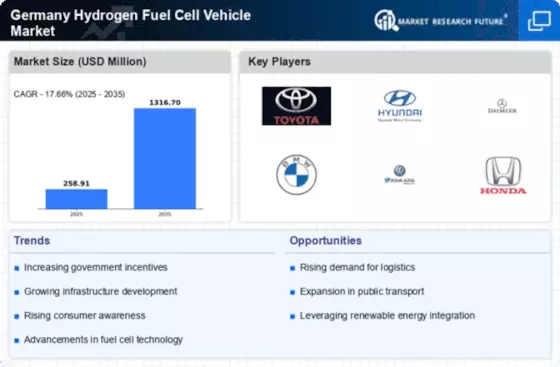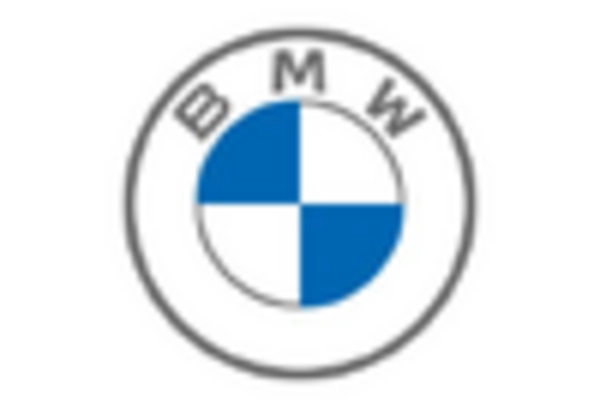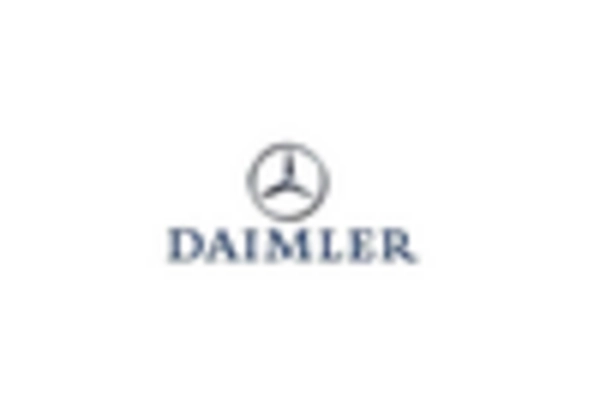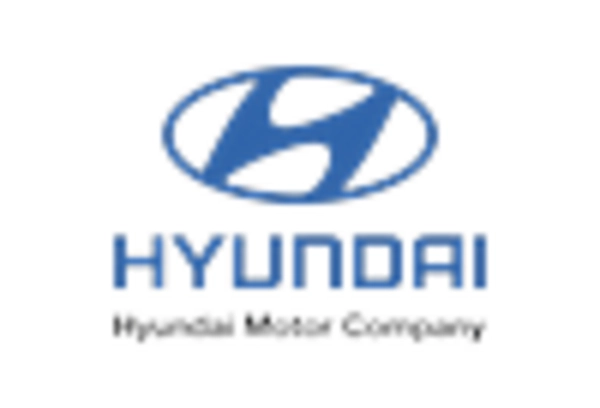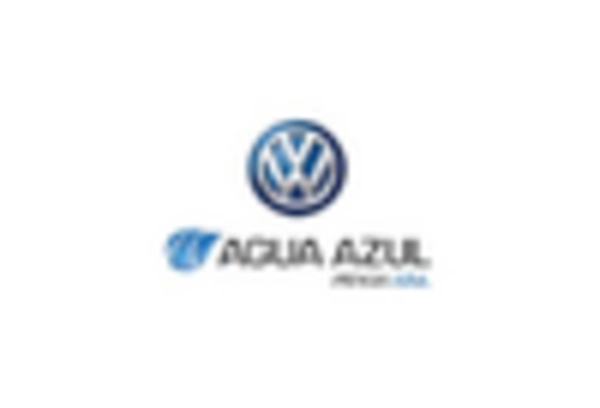Government Incentives and Subsidies
The Germany Hydrogen Fuel Cell Vehicle Market benefits from robust government incentives and subsidies aimed at promoting clean transportation. The German government has allocated substantial funding to support the development and deployment of hydrogen fuel cell technologies. For instance, the National Innovation Program for Hydrogen and Fuel Cell Technology (NIP) has provided financial backing to various projects, enhancing the market's growth potential. Additionally, tax breaks and grants for consumers purchasing hydrogen fuel cell vehicles (FCVs) further stimulate demand. As a result, the market is projected to expand significantly, with estimates suggesting a compound annual growth rate (CAGR) of over 20% in the coming years. This supportive policy environment is crucial for the long-term sustainability of the Germany Hydrogen Fuel Cell Vehicle Market.
Infrastructure Development Initiatives
Infrastructure development is a critical driver for the Germany Hydrogen Fuel Cell Vehicle Market. The establishment of hydrogen refueling stations is essential for the widespread adoption of hydrogen FCVs. Germany has made considerable investments in building a comprehensive network of hydrogen refueling stations, with over 100 stations operational as of early 2026. This infrastructure expansion is supported by initiatives such as the H2 Mobility project, which aims to create a nationwide refueling network. The availability of refueling stations alleviates range anxiety among consumers, thereby encouraging the transition to hydrogen-powered vehicles. Furthermore, the collaboration between public and private sectors in developing this infrastructure indicates a strong commitment to fostering the hydrogen economy in Germany.
Collaboration Between Industry Stakeholders
Collaboration among various stakeholders in the Germany Hydrogen Fuel Cell Vehicle Market is emerging as a crucial driver for market growth. Partnerships between automotive manufacturers, energy providers, and research institutions are fostering innovation and accelerating the development of hydrogen technologies. For instance, joint ventures between major automotive companies and hydrogen producers are facilitating the establishment of a sustainable supply chain for hydrogen fuel. These collaborations not only enhance technological advancements but also promote knowledge sharing and resource optimization. As stakeholders work together to address challenges such as production costs and infrastructure development, the overall market landscape is likely to become more favorable for hydrogen FCVs, thereby enhancing their market penetration in Germany.
Environmental Regulations and Climate Goals
The stringent environmental regulations and ambitious climate goals set by the German government are significant drivers for the Germany Hydrogen Fuel Cell Vehicle Market. Germany aims to reduce greenhouse gas emissions by 55% by 2030, and hydrogen FCVs are seen as a viable solution to achieve these targets. The government has implemented regulations that encourage the adoption of zero-emission vehicles, including hydrogen-powered cars. This regulatory framework not only promotes the use of hydrogen FCVs but also aligns with the European Union's broader climate objectives. As consumers become increasingly aware of environmental issues, the demand for cleaner transportation options is expected to rise, further propelling the growth of the hydrogen market in Germany.
Technological Advancements in Fuel Cell Technology
Technological advancements play a pivotal role in shaping the Germany Hydrogen Fuel Cell Vehicle Market. Continuous research and development efforts have led to significant improvements in fuel cell efficiency, durability, and cost-effectiveness. Innovations such as advanced membrane technologies and improved catalysts are enhancing the performance of hydrogen FCVs, making them more competitive with traditional internal combustion engine vehicles. As manufacturers adopt these cutting-edge technologies, the market is likely to witness a surge in vehicle offerings, catering to diverse consumer needs. Moreover, the integration of hydrogen fuel cells with renewable energy sources, such as wind and solar, further enhances the sustainability of the hydrogen ecosystem in Germany, positioning the country as a leader in The Hydrogen Fuel Cell Vehicle.


